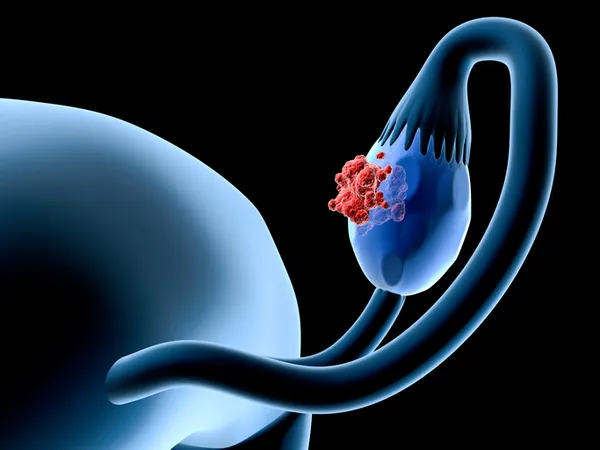
Can Riluzole and a High Glycemic Index Diet Slow Down ALS Progression? New Study Reveals Surprising Findings!
2025-01-17
Author: John Tan
Groundbreaking Findings on ALS and Diet
A groundbreaking study has found that a diet rich in high glycemic index (GI) foods may lead to a slower progression of amyotrophic lateral sclerosis (ALS) among patients taking the standard medication, riluzole. This surprising connection suggests that what patients eat could have significant implications for their health and treatment outcomes.
Previous Research Insights
Researchers have previously indicated that both high glycemic index and glycemic load (GL)—which measure how foods affect blood sugar levels—are linked to a deceleration in ALS progression. However, the latest findings demonstrate that this effect is notably more pronounced among patients who were also undergoing treatment with riluzole.
Publication and Significance
The findings were published in the esteemed *Annals of Clinical and Translational Neurology*, sparking interest in how dietary choices could optimize the benefits of existing ALS treatments. This could pave the way for innovative nutritional counseling that might empower patients to take control of their disease management.
The Importance of Nutritional Strategies
As ALS is a neurodegenerative condition that progressively deteriorates muscle function, understanding interventions that could potentially extend the quality of life is critical. Nutritional strategies remain a vital part of the conversation, yet ongoing research continues to explore whether specific diet components can directly influence disease progression or longevity.
Study Details and Findings
In an earlier study comprising 304 sporadic ALS patients from the ALS Multicenter Cohort Study of Oxidative Stress (COSMOS), it was found that those consuming higher GI or GL foods experienced slower disease progression and even better survival rates. These metrics are essential as a high GI indicates that the food will cause a rapid spike in blood sugar, while GL accounts for both the glycemic index and the total carbohydrates consumed.
The Connection Between Riluzole and Diet
The researchers delved deeper into the relationship between riluzole treatment and dietary glycemic index to ensure valid conclusions could be drawn. Riluzole is known for its modest survival benefits in ALS treatment and functions by inhibiting harmful glutamate signaling that can damage nerve cells. Interestingly, some studies suggest that riluzole may also impact glucose metabolism, opening another avenue for inquiry.
Observational Study Results
In this recent study, participants were monitored using the ALS Functional Rating Scale – Revised (ALSFRS-R), assessing changes in their condition over three months. Among the 304 individuals involved, 53% were taking riluzole. The data revealed that the interaction between GI levels and riluzole significantly affected disease progression—those on riluzole who incorporated high GI foods reported slower declines compared to their counterparts with lower dietary GI.
Impact of Dietary Choices
Specifically, the lowest GI group among riluzole users experienced a more substantial decline in motor function over the three-month span than those adhering to a higher GI diet. The same trend was observed concerning glycemic load, reinforcing the notion that diet and medication could work synergistically to mitigate ALS progression.
Need for Further Research
Despite the intriguing results, experts caution that these associations do not imply cause and effect due to the observational nature of the study. Further research, particularly randomized controlled trials incorporating continuous glucose monitoring, is deemed necessary to decisively assess the impact of dietary choices on ALS.
Conclusion and Future Directions
In conclusion, this landmark study opens up new avenues for ALS treatment strategies, emphasizing the importance of dietary considerations alongside pharmacological therapies. As scientists continue to unravel the complexities of ALS, both patients and caregivers will undoubtedly be eager to learn how to harness the healing potential of food in their fight against this debilitating condition. Keep an eye out for more updates on this pivotal research—your diet might just be the key to slowing ALS progression!



 Brasil (PT)
Brasil (PT)
 Canada (EN)
Canada (EN)
 Chile (ES)
Chile (ES)
 Česko (CS)
Česko (CS)
 대한민국 (KO)
대한민국 (KO)
 España (ES)
España (ES)
 France (FR)
France (FR)
 Hong Kong (EN)
Hong Kong (EN)
 Italia (IT)
Italia (IT)
 日本 (JA)
日本 (JA)
 Magyarország (HU)
Magyarország (HU)
 Norge (NO)
Norge (NO)
 Polska (PL)
Polska (PL)
 Schweiz (DE)
Schweiz (DE)
 Singapore (EN)
Singapore (EN)
 Sverige (SV)
Sverige (SV)
 Suomi (FI)
Suomi (FI)
 Türkiye (TR)
Türkiye (TR)
 الإمارات العربية المتحدة (AR)
الإمارات العربية المتحدة (AR)